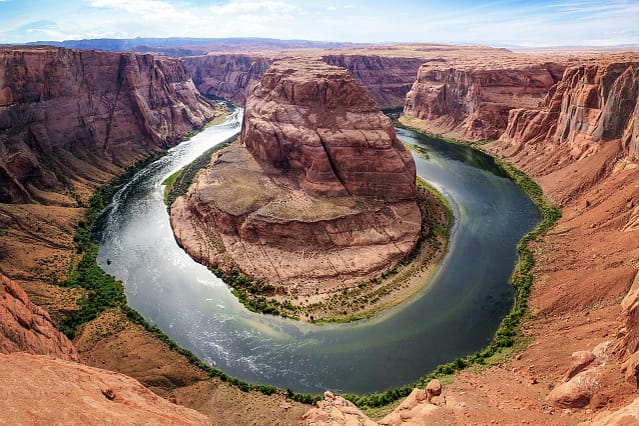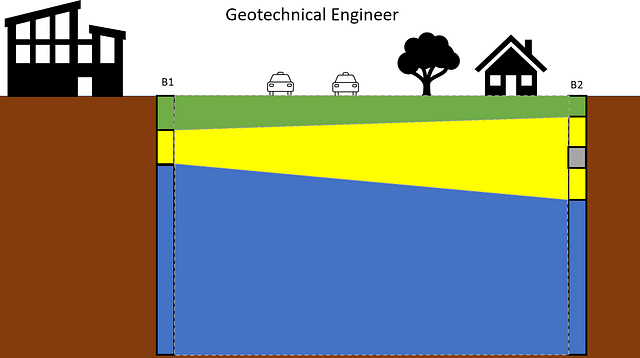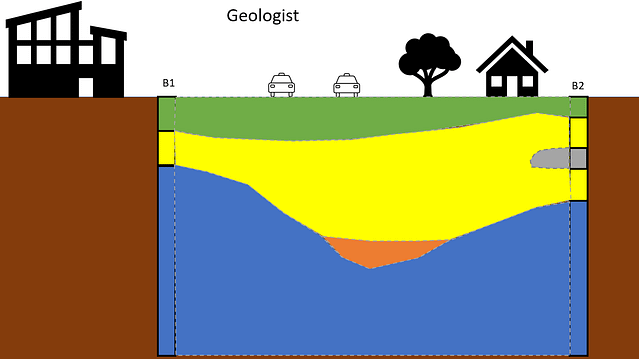
“Geologists have a saying – rocks remember.”
Neil Armstrong, 40 Geology Quotes | Kidadl
What is Geology?
Like my past post What is a Geotechnical Engineer? – How to Geotech, I want to start this discussion by discussing the etymological breakdown of the word geology. Geology comes from the Greek root “geo-“ meaning “earth” and “-logy” meaning “study (of)”. Therefore, geology means study of the earth. Geology is a branch of the natural sciences that focuses on the history, formation, and changing of the physical earth, such as soils and rocks.
Geology, like other sciences, has many different subfields and specialties. Some of these fields are:
- Petrology – the study of rocks
- Mineralogy – the study of minerals
- Geophysics – the study of the structure of rocks
- Geochemistry – the study of chemistry of rocks
- Paleontology – the study of fossils
- Geomorphology – the study of processes that shape rock
- Hydrogeology – the study of water moving through rock
This list is not exhaustive but is intended to give you a flavor of the wide range of topics that geology covers.
As a science, geology focuses on the study of knowledge and the answering of questions. This often leads to friction and disagreements between geotechnical engineers and geologists. Geotechnical engineers often devalue the input of geologists, because of the uncertainty and different goals of the two practices. Geologists are trained to ask how did this happen? Geotechnical Engineers are trained to ask how does this information lead me to a practical solution?
Why should Geotechnical Engineers care about Geology?
Geology plays into every aspect of geotechnical engineering. Geotechnical engineers focus on the engineering of soils for the built environment. As defined by geologists, soil is the thin layer of decomposed rock that exists at the surface of our planet. It is important to recognize that all soil comes from geologic processes that break down rocks into soils. Understanding how the soil that we are working with got to the jobsite is the foundation for all our geotechnical assumptions and recommendations.
Geotechnical engineers often create sitewide recommendations based on little hard data. For large box stores, such as a Costco warehouse, we would be lucky to have more than 2 borings. Those two 8-inch borings provide us with hard data to then extrapolate our findings to recommendations across a 150,000 square foot building. Geology aids geotechnical engineers in extrapolating those borings across wide footprints by applying geology concepts of how the soils at the site were deposited and how their layers and physical properties vary.
There is often a joke that circulates in the engineering and geology communities about how geologists and geotechnical engineers connect soil layers between borings. I apologize for my crude artistic skills, but the image below communicates the joke. Geotechnical engineers often draw straight lines to connect soil layers without broader input based on information from geology, especially geomorphology and hydrogeology. Geologists are trained to take these into consideration and may end up with a vastly different soil subsurface. Knowing something about geology can make or break your geotechnical engineering predictions.


Future topics to be covered
This post was only meant to serve as an introduction to geology and state why I believe geotechnical engineers should care and learn more about geology. To continue to communicate these thoughts I have the following future geology focuses posts planned. The list below will be updated with links as I publish the articles and may change depending on how I structure each post.
- Geomorphology for Geotechnical Engineers – How to Read the Land
- What is engineering geology?
- Geology basics – Minerals
- Geology basics – Rocks
- Geology basics – Rock structure
- How is soil formed? – Physical weathering
- How is soil formed? – Chemical weathering
- How to move mountains? – Surface water
- How to move mountains? – Glaciers
- How to move mountains? – Wind
- How to move mountains? – Tectonics
- Time – why does the age of a rock matter?
- Sedimentation
As always, thank you for your time, and best of luck in your geotechnical engineering journey.